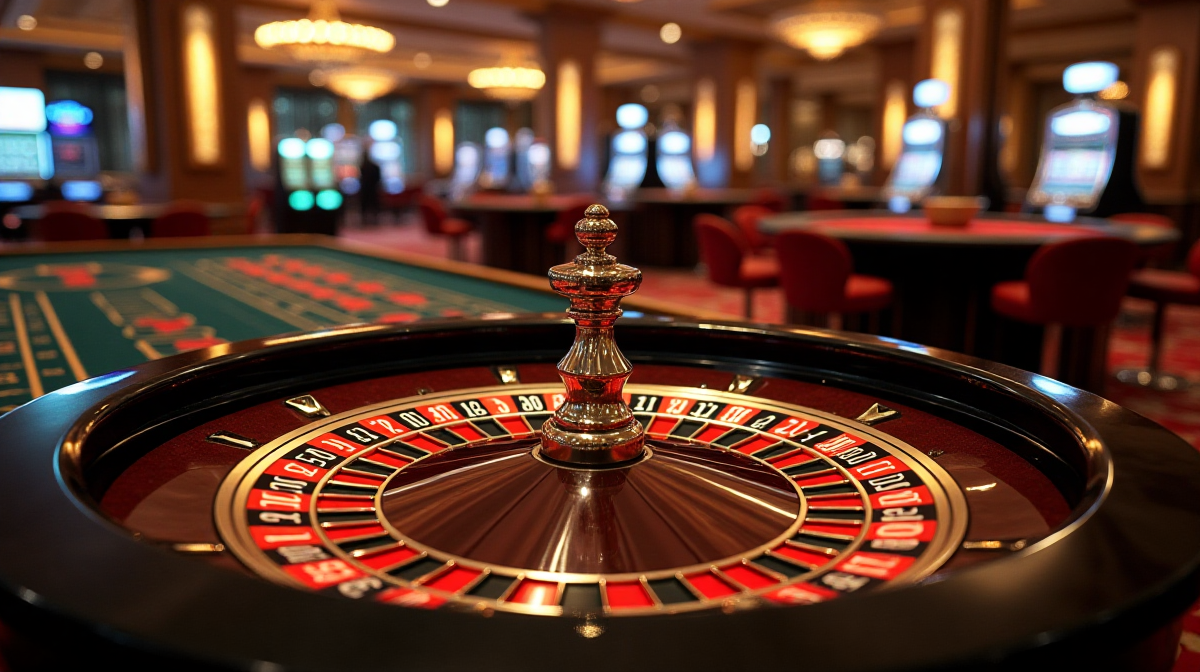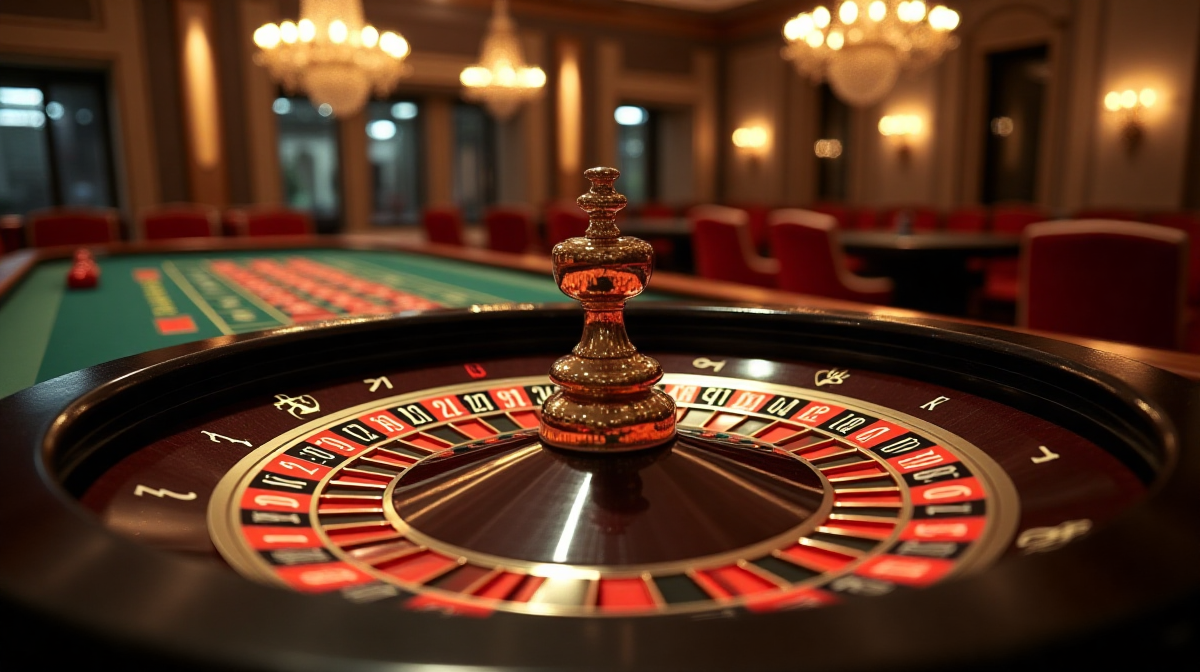No Way Out: Mastering Roulette Odds?
The roulette wheel, a symbol of casino glamour and the thrill of risk, has captivated players for centuries. The allure is undeniable, fuelled by the dream of predicting the seemingly random spin and walking away a winner. However, beneath the surface of flashing lights and cheering crowds lies a complex mathematical reality. This article delves into the intricacies of roulette, examining the odds, strategies, and the fundamental limitations of attempting to master this iconic game of chance. We’ll explore why, despite countless attempts, consistently beating roulette remains, for most, a pursuit with no way out the roulette.
The Timeless Appeal of the Roulette Wheel
From Monte Carlo to Las Vegas, the roulette wheel evokes a sense of sophistication and excitement. Its simple premise – betting on where a ball will land – belies a surprisingly deep level of strategic consideration, or at least the illusion of it. The very name, French for “little wheel”, hints at the inherent randomness that defines the game.
Debunking the “Guaranteed Win” Myth: Why It’s So Difficult
The internet is rife with claims of foolproof roulette systems promising guaranteed profits. These promises are almost always false. Roulette, at its core, is a game of pure chance. While understanding the probabilities can inform your betting choices, it cannot eliminate the inherent house edge. Successfully navigating the world of online casinos often begins with m sport bet registration and understanding the inherent risks.
Statement of Intent: Exploring the mathematical realities and practical limitations of mastering roulette.
This article doesn't aim to provide a “winning” formula. Instead, it will dissect the mathematics behind roulette, analyse common strategies, and offer a realistic perspective on the potential for success. We will explore the reasons why consistently beating roulette is extraordinarily difficult, despite what some may claim.
American vs. European Roulette: A Crucial Distinction
The first and most important distinction to understand is the difference between American and European roulette. American roulette features a wheel with 38 slots (1-36, 0, and 00), while European roulette has 37 (1-36 and 0). This seemingly small difference significantly impacts the house edge. American roulette has a house edge of 5.26%, while European roulette boasts a more player-friendly 2.7%. Choosing European roulette is always the mathematically sound decision. Many platforms, like m sport bet, offer both versions, so it's important to be aware of the difference.
The Anatomy of a Roulette Table: Bets, Layout & Payouts
The roulette table appears daunting at first glance, but it's logically organised. Bets are placed on various sections representing different numbers, combinations, or characteristics (red/black, even/odd). Payouts vary depending on the probability of winning the bet. Inside bets (e.g., single numbers) offer higher payouts but lower probabilities, while outside bets (e.g., red/black) offer lower payouts but higher probabilities.
Probability Basics: How Roulette Bets are Calculated
Understanding the underlying probabilities is crucial for informed betting.
Single Number Bets: Odds and Payouts
Betting on a single number (straight up) offers a payout of 35:1. However, the probability of winning is 1/37 (European) or 1/38 (American).
Even/Odd, Red/Black: The Illusion of 50/50
While seemingly offering near 50/50 odds, these bets are slightly skewed due to the presence of the zero (and double zero in American roulette).
Dozens & Columns: Exploring the Intermediate Bets
These bets cover 12 numbers each, offering a payout of 2:1.
Straight Up, Split, Street, Corner, Line: A detailed breakdown
These bets involve combinations of numbers, each with its own specific payout and probability. Understanding these nuances can enhance your appreciation of the game, but won’t guarantee profits.

Progressive Betting Systems: The Promise & Pitfalls
Many players gravitate towards betting systems, believing they can overcome the house edge. Progressive systems involve adjusting bet sizes based on previous outcomes.
Martingale System: Risks and Limitations
The Martingale system involves doubling your bet after each loss, aiming to recoup previous losses with a single win. While theoretically sound, it requires an enormous bankroll and is vulnerable to table limits, leading to potentially catastrophic losses. Especially if you are new to m sport bet sign up and using real money.
Reverse Martingale : Another Look at Progression
This system involves doubling your bet after each win, aiming to capitalise on winning streaks. It’s less risky than the Martingale but still doesn’t eliminate the house edge.
Fibonacci System: A Less Aggressive Approach
This system uses the Fibonacci sequence to determine bet sizes. It’s less volatile than the Martingale but still doesn’t guarantee profits.
D'Alembert System: Even Steadier, But Still No Guarantee
This system involves increasing your bet by one unit after a loss and decreasing it by one unit after a win. It’s a more conservative approach but still susceptible to the house edge.
Non-Progressive Betting Systems: Focusing on Bet Selection
James Bond Strategy: A Specific Bet Combination
This strategy involves covering a significant portion of the wheel with a specific combination of bets. It’s a more nuanced approach but doesn’t eliminate the house edge.
The “Covering the Wheel” Technique: Costly and Ineffective
Attempting to cover a large number of numbers on the wheel is expensive and still leaves significant portions uncovered, making it a losing proposition in the long run.
The Gambler’s Fallacy and Why it Persists in Roulette
The gambler’s fallacy is the belief that past events influence future independent events. In roulette, this manifests as the belief that if red has appeared several times in a row, black is “due” to come up. This is incorrect; each spin is independent, and the odds remain the same regardless of previous outcomes.
Expected Value : The Core of Understanding Long-Term Results
Expected value is a crucial concept in understanding gambling. It represents the average profit or loss you can expect per bet over the long run. For all roulette bets, the expected value is negative due to the house edge.
How to Calculate EV for Different Roulette Bets
EV is calculated by multiplying the probability of winning by the net profit (payout minus bet amount).
The Impact of the House Edge – An Unavoidable Reality
The house edge represents the casino’s advantage in each bet. It’s the reason why, over time, the casino is guaranteed to win. Understanding the roulette meaning and the house edge is crucial for realistic expectations.
Simulation & Data Analysis: Modelling Roulette Outcomes
Running simulations can demonstrate the long-term effects of the house edge and the ineffectiveness of betting systems.
Wheel Bias: Can Physical Imperfections be Exploited?
Historically, some players have attempted to exploit physical imperfections in roulette wheels, known as wheel bias. However, modern wheels are manufactured to extremely precise standards, making this approach virtually impossible.
Visual Ballistics: Attempting to Predict Landing Zones
Visual ballistics involves attempting to predict the landing zone of the ball based on its speed and trajectory. While theoretically possible, it requires exceptional skill, precise timing, and is often illegal in casinos.
Online Roulette vs. Live Dealer Roulette - Differences in RNG & Potential Issues
Online roulette relies on Random Number Generators (RNGs) to determine outcomes. Live dealer roulette uses real wheels spun by human dealers. RNGs are rigorously tested for fairness, but concerns about their transparency persist.
The Role of Random Number Generators & Fair Play
RNGs are algorithms designed to produce random results. Reputable online casinos use certified RNGs to ensure fair play.
Recognizing the Realities of Roulette: It’s Primarily Chance
Roulette is, fundamentally, a game of chance. While strategy and understanding the odds can enhance your enjoyment, they cannot guarantee consistent wins.
Setting Limits & Sticking to a Budget
Responsible gambling involves setting limits on your spending and sticking to them, regardless of your wins or losses.
Understanding Problem Gambling & Seeking Help
If you feel your gambling is becoming a problem, seek help from a support organization.
Viewing Roulette as Entertainment, Not a Source of Income
The most realistic approach to roulette is to view it as a form of entertainment, not a way to make money.
Recap of Key Concepts: Odds, EV, and Systems
We’ve explored the odds, expected value, and various betting systems associated with roulette. Remember, consistent profits are elusive.
The Bottom Line: There's No Mastering Roulette in the Traditional Sense
Despite the allure of winning strategies, there’s no legitimate way to “master” roulette in the sense of consistently beating the house. The house edge ensures that the casino will always have an advantage over the long run. The excitement of platforms like m sport bet should be enjoyed responsibly.

Finding Enjoyment in the Game While Gambling Responsibly.
Roulette can be a thrilling and entertaining game when played responsibly. By understanding the odds, managing your expectations, and setting limits, you can enjoy the experience without risking financial hardship. Accepting that no way out the roulette exists, in terms of guaranteed winnings, is the first step towards responsible and enjoyable gameplay.

